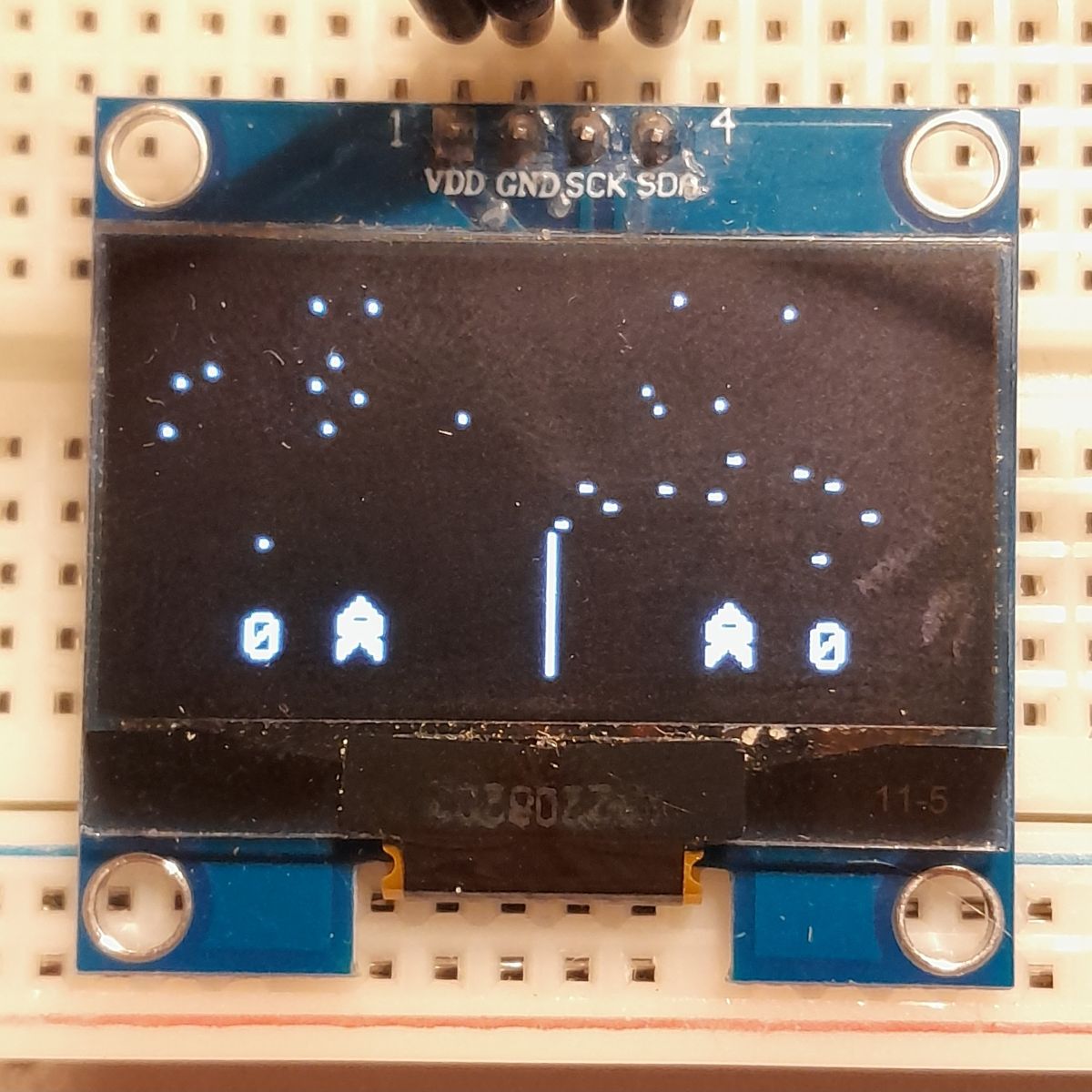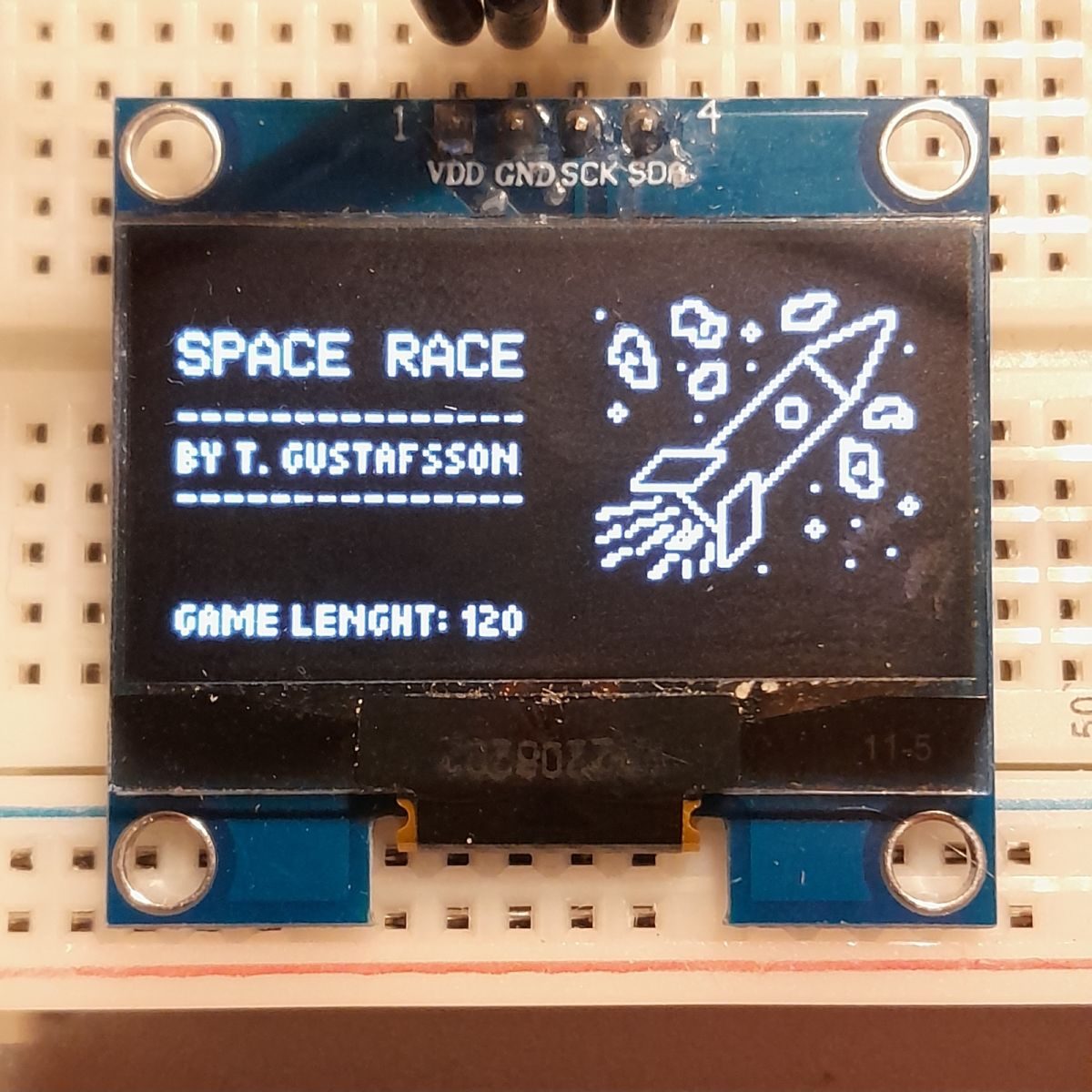Atari Space Race with Arduino
Atari's Space Race, their 2nd game after Pong was released in july 1973.
Back in 1973
Space Race was created by Atari co-founder Nolan Bushnell. The game was a two -player competitive racing experience that simulated space travel. Players controlled rocket ships, navigating through a scrolling asteroid field while trying to reach the finish line before their opponent as many times as possible.
The gameplay was relatively simple. Each player had a dedicated joystick to control the up/down direction of their rocket. The objective was to complete the race as quickly and as often as possible while avoiding collisions with asteroids, which added an element of skill and strategy to the game.
My Arduino version
First things first. If you want to play the original space exactly as it was, download DICE-emulator. My Arduino version is my interpretation of the game. All the basic game mechanics are present, but I took some artistic liberty.
 Biggest difference to original game is in the asteroid fields. Original game had two static sets of asteroids one flying from left to right and other from right to left. I belive this is a limitation in the original hardware. And remember, it was all hardware back then. So in my version I used random asteroid movements. And in my game you can adjust game lenght. Apparently this was a feature in the original game as well, but I'm not sure if it's true. You can also change the speed and number of asteroids from the code. Another obvious difference happens when you hit asteroid. In original game there is a short delay before you could continue with another try. I belive this too was a limitation in the original hardware. In my game there is no delay, so you could keep going immediately. This delay can be implimented as well if it's desired.
Biggest difference to original game is in the asteroid fields. Original game had two static sets of asteroids one flying from left to right and other from right to left. I belive this is a limitation in the original hardware. And remember, it was all hardware back then. So in my version I used random asteroid movements. And in my game you can adjust game lenght. Apparently this was a feature in the original game as well, but I'm not sure if it's true. You can also change the speed and number of asteroids from the code. Another obvious difference happens when you hit asteroid. In original game there is a short delay before you could continue with another try. I belive this too was a limitation in the original hardware. In my game there is no delay, so you could keep going immediately. This delay can be implimented as well if it's desired.
Original game was designed for NTSC televisions. Old analog televisions used raster scan to produce an image, and there was no resolution or pixels as we know them today. NTSC system has 525 horizontal scan lines with 486 of them visible. My version is adjusted for 128x64 pixel OLED screen, so there is some compromise involved. I use 1,3" screen, but very inexpensive 0,96" OLEDs with SSD1306 driver can be used too. Just change the library in the code. I use Adafruit GFX library, so any Adafruit display specific library can be used with minor modifications. So, nothing prevents you from using bigger displays as well. Or use TVout library for 128x96 pixels. Just an idea.
While Space Race may not have achieved the same level of mainstream success as some later Atari titles (or Pong), its impact on the gaming industry is undeniable. The game laid the foundation for the multiplayer experiences that would become a cornerstone of video game culture. And lets not forget that it was first racing game and first game with a goal of crossing the screen while avoiding obstacles. Atari's pioneering efforts with Space Race helped establish the idea that gaming could be a social activity, foreshadowing the rise of multiplayer gaming communities in the decades to come. Everything starts somewhere, in this case it started here. With Pong.
In retrospect, Space Race remains a milestone in the history of video games, showcasing Atari's early commitment to pushing the technology and entertainment.

